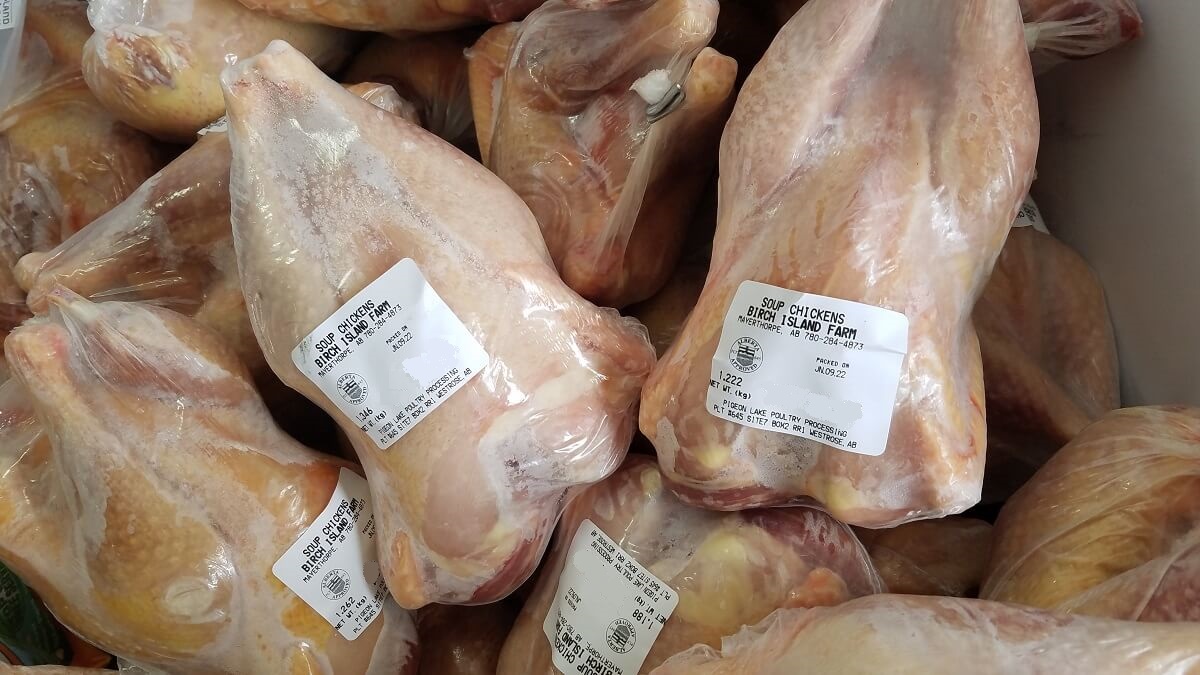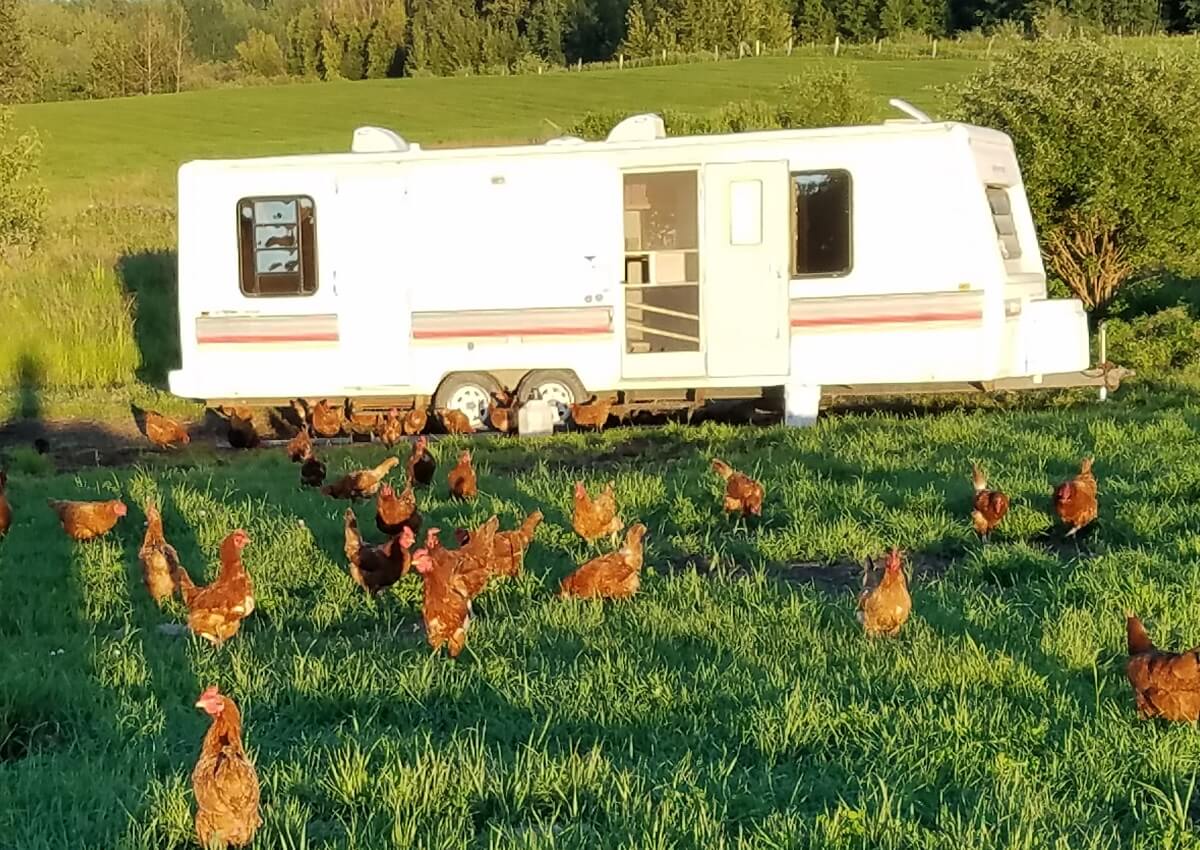Life Cycle of a Laying Hen (originally posted July 2022)
Most of our laying hens are purchased from a hatchery as day-old chicks. I do raise a few of my own each year as well, with a broody hen sitting on eggs and then caring for the chicks that hatch. Young chicks from a hatchery are without a mother need the warmth of a brooder for the first month of their lives, and that is how most of mine are raised.

Once the chicks are able to regulate their own temperature and handle cooler weather, they are moved outside into a chicken tractor. The structure provides them with protection while they are small, and it is pulled along the grass (with them in it) so they have fresh greens to eat each day, along with organic grains and any bugs they find.

When the chicks get bigger, they can be moved into a larger area with a shelter for them at night, and more room inside electric poultry netting for them to explore. The chicks stay in this setup during the summer and fall while they are growing. We move the whole setup every month so they can have fresh grass and fertilize more of the soil!

The hens start laying eggs when they are around 5 or 6 months old. When they are mature, they are moved into our "egg-mobiles" which are converted holiday trailers. The egg-mobiles have nesting boxes where the chickens lay eggs, as well as roosting bars which they use at night to roost on. Once the chickens are trained to return to the egg-mobiles at night, they can be moved all around the different pastures on our property. They are very useful for cleaning up pastures after the cows have eaten the grass down. The chickens will de-bug the pastures for us, making them cleaner (less parasites) for the next time the cows are rotated around to graze the area! This is a symbiotic relationship, benefitting the laying hens, the cows, and the pasture. The delicious, golden-yolked eggs are a by-product of the system.
Our livestock guardian dogs play a very important role in keeping the hens safe while they're far from the yard in various pastures. If we did not have the dogs, many birds would be lost to predators.
In winter, the egg-mobiles are relocated back in the yard, and the chickens range out from them all over the yard on warmer winter days.

Once a laying hen has laid eggs for about 2 years, her laying slows down considerably. At that point, younger layers take her place and she is processed as a soup chicken. Soup chickens need to be cooked for a long time (in water) in a slow cooker or Instant Pot. But, they make the most delicious broths and soups!

And there you have the complete life cycle of a laying hen at Birch Island Farm!

